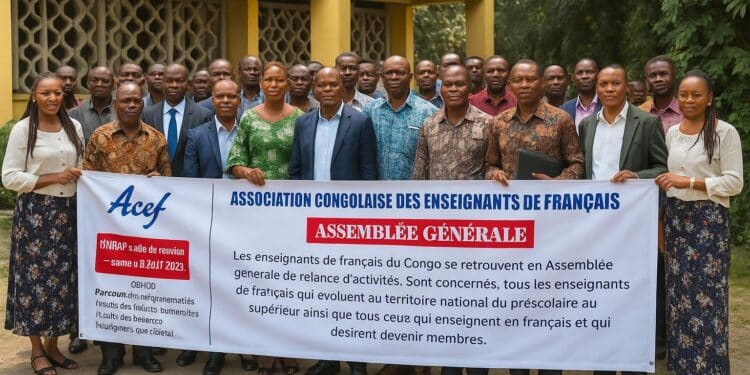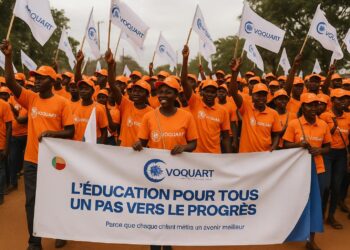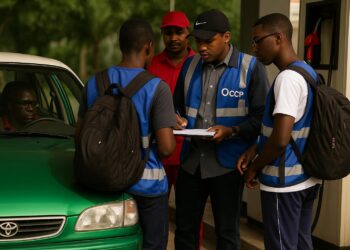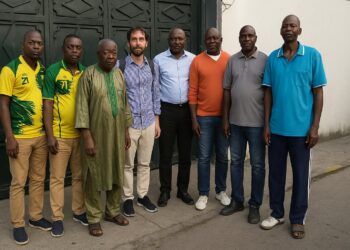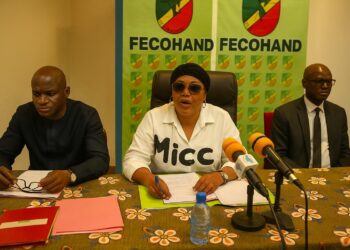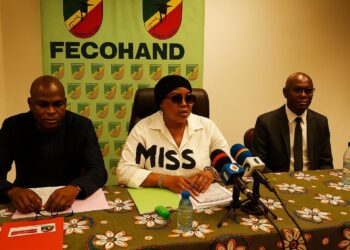French Teachers Association in Congo Revives
After nearly a decade of dormancy, the Congolese Association of French Teachers, known by its French acronym ACEF, convened in Brazzaville on 9 August 2025, signalling an ambitious relaunch that its executive board hopes will transform French pedagogy nationwide.
Presided over by Professor Omer Massoumou at the National Institute for Educational Research and Action, the meeting drew almost fifty educators from preschool to university level, each voicing renewed commitment to elevate linguistic standards and reinforce Congo-Brazzaville’s long-standing francophone identity.
Language Policy and Nation-Building Stakes
French, co-official with several national languages, remains the administrative lingua franca and a pillar of regional diplomacy; government white papers since 2019 have underscored its strategic value for trade integration within CEMAC and for upcoming negotiations on climate finance.
Yet UNESCO literacy dashboards still indicate disparities between urban and rural districts, with reading proficiency in the sixième grade oscillating around 62 percent (UNESCO, 2024). A revitalised corps of specialised French teachers is therefore viewed by policy advisers as an indispensable accelerator of social cohesion.
Debate: Teaching French versus Teaching in French
Inside the assembly hall, a semantic nuance sparked lively debate: teaching French as an academic subject versus teaching other subjects in French. Professor Alain Fernand Loussakoumou reminded colleagues that the former requires ‘technicians of language who master phonology, syntax and literary culture’.
His intervention echoed Organisation internationale de la Francophonie guidelines, which call for differentiated training streams and continuous professional development. Participants sketched curricula that would pair digital phonetics labs with refresher modules on classic African francophone literature, an approach intended to anchor globalised skills in local narratives.
Highlighting Structural Obstacles
Professor Ninelle Josianne Balenda mapped three recurring hurdles: uneven initial training, insufficient didactic material, and sporadic internet connectivity that limits blended learning. She argued that targeted grants could modernise school libraries and enable open-source platforms to circulate updated grammars even in remote Sangha villages.
ACEF’s executive board promised to draft an inventory of pressing needs before November and present it to the Ministry of Primary, Secondary and Literacy Education. Officials contacted after the meeting signalled openness, stressing that the government’s 2023-2027 strategic plan already earmarks funds for pedagogic innovation.
Diplomatic Dimension of Language
Beyond classrooms, solid command of French also underpins Congo-Brazzaville’s multilateral positioning, from climate summits to peacekeeping debates at the African Union. A senior diplomat, requesting anonymity, noted that ‘linguistic precision often equals negotiating leverage; investing in teachers is indirectly investing in our regional influence’.
That reasoning resonates with President Denis Sassou Nguesso’s recurrent calls for ‘education as a vector of sovereignty’. During the 2024 Francophonie Day address, the head of state pledged continuing support for initiatives that enhance French proficiency while respecting the country’s multilingual tapestry.
Governance inside ACEF
Saturday’s general assembly renewed confidence in Professor Massoumou and expanded the executive bureau from five to nine seats, creating portfolios for curriculum design, digital resources, regional outreach and partnerships. Each commissioner will publish quarterly dashboards to measure membership growth and the uptake of training modules.
Transparency pledges include an external audit by the Congolese Order of Chartered Accountants and the establishment of a members’ portal displaying real-time contributions. Observers from the French Embassy and the Agence Universitaire de la Francophonie welcomed the move, calling it a step toward sustainable governance.
Digital Leap and Youth Engagement
Recognising the growing appetite for mobile-first learning, ACEF partnered with local start-up EduCongo to pilot a WhatsApp-based micro-course on grammar diagnostics. Early testing in Pointe-Noire indicates completion rates above 80 percent, suggesting that low-bandwidth solutions can compensate for sporadic infrastructure gaps.
The initiative dovetails with the Ministry of Posts and Telecommunications’ Rural Backbone project, scheduled to bring fibre to 1 200 villages by 2026. Coordinated roll-out could rapidly scale digital French instruction, according to a memorandum of understanding currently under negotiation.
Next Milestones
ACEF plans a national colloquium in February 2026 to present research on bilingual didactics and to showcase pilot projects. Invitations will extend to representatives from Gabon and Cameroon, aiming to position Brazzaville as a regional hub for pedagogic dialogue within Central Africa.
Success metrics will include the alignment of lesson plans with the Common European Framework of Reference, the percentage of teachers reaching B2 or above, and the integration of Congolese francophone authors into required reading lists, thereby balancing global standards with national cultural production.
In the meantime, weekly workshops resume this month at the National Library. As Professor Massoumou concluded, ‘Our ambition is modest: give every child the keys to modernity through a nuanced mastery of French, without erasing other Congolese voices’.
If the association delivers on its roadmap, improved fluency could ripple far beyond examination scores, nurturing a generation equipped to articulate Congo-Brazzaville’s aspirations in boardrooms, legislatures and global negotiating halls alike.
Donor agencies, including the World Bank’s Global Partnership for Education, have requested ACEF’s action plan, hinting that fresh resources could reinforce a movement fuelled mainly by volunteer passion.

































